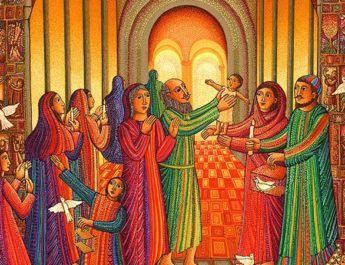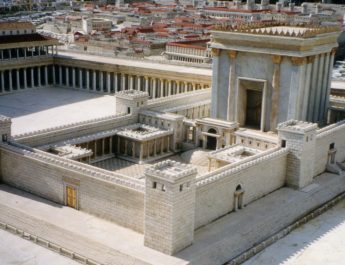Psalm 146
Ordinary C44
1 PraiseA the Lord!B
Praise the Lord,C O my soul!D
A “praise” = halal. This is to be clear – it originally referred to a sound, then a color. It was to shine and then make a show or boast then to rave. In a causative sense it came to mean celebrate, give glory, sing praise, or be worth of praise. Because of the celebratory nature of the word, it could also mean to give in marriage. This is where Hallelujah comes from.
B “Lord” = Yah. From YHVH (proper name of the God of Israel; God, Lord; the self-existent or eternal one); from havah (to become) or hayah (to be, become, happen)}. This is Lord or God – a shortened form of God’s most holy name.
C “Lord” = YHVH. Related to “Lord” in v1. See note B above.
D “soul” = nephesh. Related to naphash (to refresh or be refreshed). This is soul, self, person, emotion. It is a breathing creature. Can also refer to appetites and desires.
2 I will praise the LordE as long as I live;F
I will sing praisesG to my GodH all my life long.
E “Lord” = YHVH. Same as “Lord” in v1. See note C above.
F “live” = chay. From chayah (to live or keep alive literally or figuratively). This is alive, living, lifetime. It can also be used to describe someone’s age. It can refer to animals, plants, water, or a company or congregation of people. It is life in a very broad sense.
G “sing praises” = zamar. Perhaps from zamar (to trim or prune). This is making music. It is used specially of music to worship God. So, music with singing, singing praise, or singing psalms.
H “God” = Elohim.
3 Do not put your trustI in princes,J
in mortals,K in whom there is no help.L
I “put…trust” = batach. This is to hide for refuge, be secure or sure. Figuratively, it refers to trust, being confident, or hoping.
J “princes” = nadib. From nadab (to offer willingly, volunteer, freely give, be willing). Properly, this is voluntary and so it implies generous, noble, magnanimous, or a generous person.
K “mortals” = ben + adam. Literally “a son of man.” Ben is son, age, child. It is son in a literal or figurative sense. Adam is perhaps from adam (to be red, make ruddy); related to adamah (ground, dirt, earth). This is man, humankind, also Adam’s name. It refers to a human individual or humanity.
L “help” = teshuah. From yasha (to deliver, defend, help, preserve, rescue; properly, to be open, wide or free, which implies being safe; to free someone). This is deliverance or salvation.
4 When their breathM departs, they returnN to the earth;O
on that very day their plansP perish.Q
M “breath” = ruach. This is breath, wind, air, cool, spirit. This is wind, which resembles the breath and so this can be used figuratively for life itself or being frail/mortal/impermanent. It can refer to the air of the sky or the spirit.
N “return” = shub. To turn back, return, turn away – literally or figuratively. Doesn’t necessarily imply going back to where you started from. This is also the root verb for the Hebrew word for repentance “teshubah.”
O “earth” = adamah. Related to “mortals” in v3. From the same as adam (see note K above). This is ground, earth, soil as red, or land.
P “plans” = eshtonah. 1x in OT. From ashath (to think, be concerned). This is a thought or thinking itself.
Q “perish” = abad. To wander off, lose self. This implies to perish, destroy, die, vanish, or be broken or corrupt.
5 HappyR are those whose helpS is the GodT of Jacob,U
whose hopeV is in the LordW their God,X
R “happy” = esher. From ashar (to go straight, lead, guide; to be level and so to be right, blessed, honest, happy). This is happy or blessedness.
S “help” = ezer. From azar (to help, protect, support, ally; properly, to surround so as to provide aid). This is help, aid, or helper. This word is used in Genesis 2:18 when God decides to make for Adam, “a helper as his partner.” If the same word can be used of God’s help (as in Psalm 121:1), then we should not downplay the significance of this formulation of “help.”
T “God” = El. Related to “God” in v2. See note H above.
U “Jacob” = Yaaqob. From the same as aqeb (heel, hind part, hoof, rear guard of an army, one who lies in wait, usurper). This is Isaac’s son and his descendants. The name means heel-catcher or supplanter.
V “hope” = seber. 2x in OT. From sabar (to examine, scrutinize, wait, expect hopefully). This is hope or expectation.
W “Lord” = YHVH. Same as “Lord” in v1. See note C above.
X “God” = Elohim. Same as “God” in v2. See note H above.
6 who madeY heavenZ and earth,AA
the sea,BB and all that is in them;
Y “made” = asah. This is to make, do, act, appoint, become in many senses.
Z “heaven” = shamayim. Root may mean being lofty. This is sky, the air, or heaven. It is in a dual noun form so this might refer to the part of the sky where the clouds move on the one hand and the part beyond that where the sun, moon, and stars are on the other hand.
AA “earth” = erets. Root may mean to be firm. This is earth, ground, field land, or country.
BB “sea” = yam. Root may mean to roar. This is the sea, often referring to the Mediterranean. It comes from the root in the sense of the roar of crashing surf. This word is sometimes used for rivers or other sources of water. It can mean to the west or to the south.
who keepsCC faithDD forever;EE
CC “keeps” = shamar. This is to keep, watch, or preserve. It means to guard something or to protect it as a thorny hedge protects something.
DD “faith” = emet. From aman (to believe, endure, fulfill, confirm, support, be faithful, put one’s trust in, be steadfast. Figuratively, this is to be firm, steadfast, or faithful, trusting, believing, being permanent, morally solid). This is firmness or stability. Figuratively, it is faithfulness, truth, or trustworthiness. This is the same root that “amen” comes from.
EE “forever” = olam. This is a long scope of time whether in the past (antiquity, ancient time) or in the future (eternal, everlasting).
7 who executesFF justiceGG for the oppressed;HH
who gives foodII to the hungry.JJ
FF “executes” = asah. Same as “made” in v6. See note Y above.
GG “justice” = mishpat. From shaphat (to judge, defend, pronounce judgment, condemn, govern). This is a verdict or formal sentence whether from humans or from God. It includes the act of judging as well as the place that judging takes place, the suit itself, and the penalty. Abstractly, this is justice, which includes the rights of the participants.
HH “oppressed” = ashaq. This is to wrong, deceive, violate, or use oppression.
II “food” = lechem. From lacham (to eat, feed on). This is bread, food, loaf. It can refer to food more generally for people or for animals.
JJ “hungry” = raeb. 16x in OT. From raeb (to be hungry or famished). This is hungry, a person who is hungry.
The LordKK sets the prisonersLL free;MM
KK “Lord” = YHVH. Same as “Lord” in v1. See note C above.
LL “prisoners” = asar. This is to tie, yoke, bind, or fasten. It can mean to harness an animal, to join in fighting a battle, or to imprison someone.
MM “sets…free” = nathar. 8x in OT. This is to jump, spring, undo, be greatly agitated, untie, or terrify.
8 the LordNN opensOO the eyes of the blind.
The LordPP lifts upQQ those who are bowed down;RR
NN “Lord” = YHVH. Same as “Lord” in v1. See note C above.
OO “opens” = paqach. This is open, as opening one’s senses, particularly eyes. So, figuratively this can refer to being watchful.
PP “Lord” = YHVH. Same as “Lord” in v1. See note C above.
QQ “lifts up” = zaqaph. 2x in OT. This is to raise or lift up. Figuratively, it can mean to comfort.
RR “bowed down” = kaphaph. 5x in OT. This is to bend, bow, or curve. It is used for bowed down (as in oppressed), a bulrush bowing, and bowing before God
the LordSS lovesTT the righteous.UU
SS “Lord” = YHVH. Same as “Lord” in v1. See note C above.
TT “loves” = aheb. This is to love, beloved, friend. It is to have affection for sexually or otherwise.
UU “righteous” = tsaddiq. From the same as tsedeq (rightness, righteousness, just cause, vindication; that which is right in a natural, moral, or legal sense; abstractly equity; figuratively prosperity). This is just, innocent, righteous, righteous one, or lawful.
9 The LordVV watches overWW the strangers;XX
he upholdsYY the orphanZZ and the widow,AAA
YY “upholds” = ud. This is to repeat, return, do again. This implies testifying something since that is a repetition. It can also mean to charge, admonish, protest, relieve, restore, or lift up.
ZZ “orphan” = yathom. This is a child without a father or more generally a person who is bereaved.
AAA “widow” = almanah. Related to alman (widowed); from alam (to be silent, bound). This is a widow or a house that is desolate.
but the wayBBB of the wickedCCC he brings to ruin.DDD
BBB “way” = derek. From darak (to tread, march, to walk. Can also mean affixing a string to a box since one needs to step on it to bend it in the process; so also an archer). This is a road as a thing that is walked on. Can be used figuratively for the path that one’s life takes or how one chooses to live one’s life.
CCC “wicked” = rasha. This is to be wicked, guilty, make trouble, do wrong. It can also be condemn, guilty, inflict punishment. This verb implies disturbing or violating.
DDD “brings to ruin” = avath. 11x in OT. This is to be crooked, falsify, pervert, thwart, turn upside down, overthrow.
10 The LordEEE will reignFFF forever,
your God,GGG O Zion,HHH for all generations.III
Praise the Lord!JJJ
EEE “Lord” = YHVH. Same as “Lord” in v1. See note C above.
FFF “will reign” = malak. To be or become king or queen, to rise to the throne, to be crowned. By implication, to take counsel. This word may be from the Hebrew word for king “melek” or vice versa.
GGG “God” = Elohim. Same as “God” in v2. See note H above.
HHH “Zion” = tsiyyon. The word is related to tsyiyyun (signpost, monument); from tsavah (to charge someone, to command, order); from the same as tsiyyah (dryness drought); from a root meaning parched as desert, dry land. Zion can refer to a mountain in Jerusalem as well as another name for Jerusalem itself or the people.
III “all generations” = dor + dor. Literally “to generation and generation.” From dur (to move in a circle, which implies living somewhere or remaining there; it can also be the sense of piling or heaping up). This is a revolution of time, which is to say, an age or generation. It can also be a dwelling or one’s posterity.
JJJ “Lord” = Yah. Same as “Lord” in v1. See note B above.
Image credit: “God’s Authority is Unique” by oscartian547, 2019




